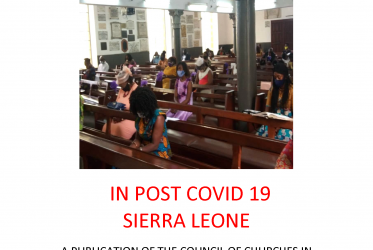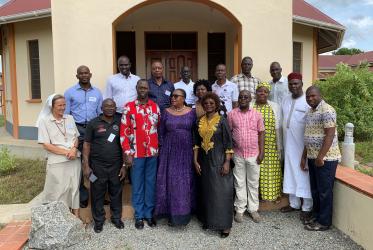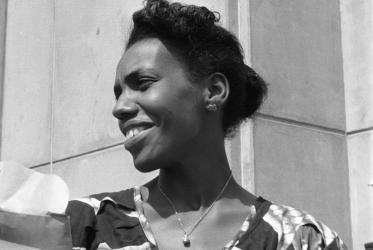Methodist Church Sierra Leone
The missionary work of the Wesleyan Methodist Church in Sierra Leone started in 1792, at the request of converted settlers from Nova Scotia who, on arrival in the country, had formed themselves into religious classes. A few people served as local preachers and class leaders. Personnel from the Methodist Church in Britain and Ireland developed the work in the provinces. The church was part of the British Conference, and became autonomous in 1967. It undertook to continue in partnership with the church in Britain. Church membership is widely representative of all sections of the nation. There is a strong lay leadership, with increasing participation by women in responsible positions. An indigenous liturgy has developed over the past thirty years among the Mende-speaking members. Traditional marriage customs are still practised in the Mende and other tribal family structures. There is an increasing political awareness throughout the connexion. Several lay persons hold high offices in government. Many are in the civil service, the judiciary and in medical services.
The church continues to manage many primary schools and 14 secondary schools. It also participates in the national adult literacy programme. The MCSL is greatly concerned about unemployment problems, heavy migration to urban areas and the consequent growth of slums, and the urgent need for low-cost housing, safe water supply and sanitation. It runs a programme on HIV/AIDS in three regions - Freetown, South and East. The church maintains the Nixon Memorial Methodist Hospital with financial aid from the Methodist Church in Great Britain. The hospital runs a nurses' training programme in cooperation with the Roman Catholic hospital, and a community health project. The MCSL has opened a new community centre for youth empowerment and the promotion of the fight against HIV/AIDS. It is intended to build such centres in other urban areas in the country.
The Tikonko Agricultural Extension Centre teaches new skills to farmers. This is now at a low ebb as a result of the war and lack of funding. Through the joint theological hall and a lay training centre the church continues to prepare its members for the ongoing mission and outreach of the Christian community in Sierra Leone. The Bunumbu Press, which has been responsible for all Christian literacy work and publication, was destroyed during the war. Progress is being made to revive the work. This programme still continues to serve all the churches in Sierra Leone. The development arm of the church manages two projects in the south and east, helping communities to develop suitable food security programmes. Plans are on the way to rehabilitate the Kailahun Community Development Project, the Pendembu Women's Project, and the Kissy Mission Integrated project.
The war has left the people shattered but strong in faith. The effects of the war continue to pose evangelistic challenges to the church.
The MCSL maintains relations with several Methodist churches in West Africa: Gambia, Ghana, Benin, Togo, Nigeria and the Ivory Coast. The conference meets bi-annually. There is a proposal to divide the conference into five districts.





